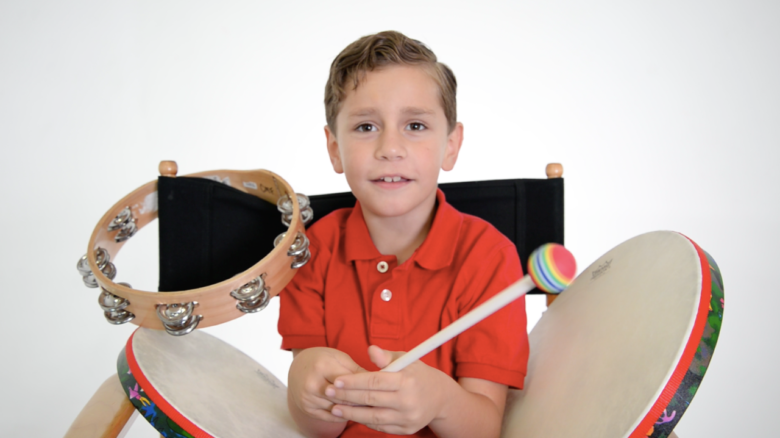
April 25, 2017 | Blogs and News
April is Autism Awareness Month, so we here at Children’s Music Fund want to share the ways that music therapy can benefit children on the Autism spectrum. Research has shown that individuals affected by Autism Spectrum Disorder (ASD) respond positively to music therapy. One of those individuals is David (pictured above), an 8 year old who through music therapy provided by CMF, worked to increase his communication skills, reduce stress, and use rhythmic techniques to reduce hyperactivity and increase focus.
Many people on the spectrum have demonstrated an increased ability to identify and recall pitches by enhanced music processing. B&B Music Lessons has put together ten facts that showcase this ability, where engaging with music affects those with ASD positively, including providing “a non-verbal, non-threatening way of confronting issues.”

According to the American Music Therapy Foundation, “Because music is processed in both hemispheres of the brain, music can stimulate cognitive functioning and may be used for remediation of some speech/language skills.” Music therapy can give a voice to those who are unable to communicate through verbal means. Music can also add stability to an individual’s multi-sensory stimulation system. The rhythmic component of music can serve as an overall organizational tool for the complex sensory system.
Additionally, music therapy can assist in stabilizing balance and coordination issues. Rhythm plays a key component to providing structure and predictability for an individual’s gate or walking stride that may otherwise be completely unpredictable.
Music therapy can also help those on the Autism spectrum by encouraging a sense of appropriate identification and expressing of emotions. By listening to an emotional piece of music, a student can then mirror the emotion they hear by practicing facial expressions in the mirror. Being able to visually see the emotion drawn out of a piece of music helps identify a range of emotions that are otherwise hidden.
Help support music therapy programs that aid children like David and others on the Autism spectrum. To donate and find out more information, visit www.theCMF.org
